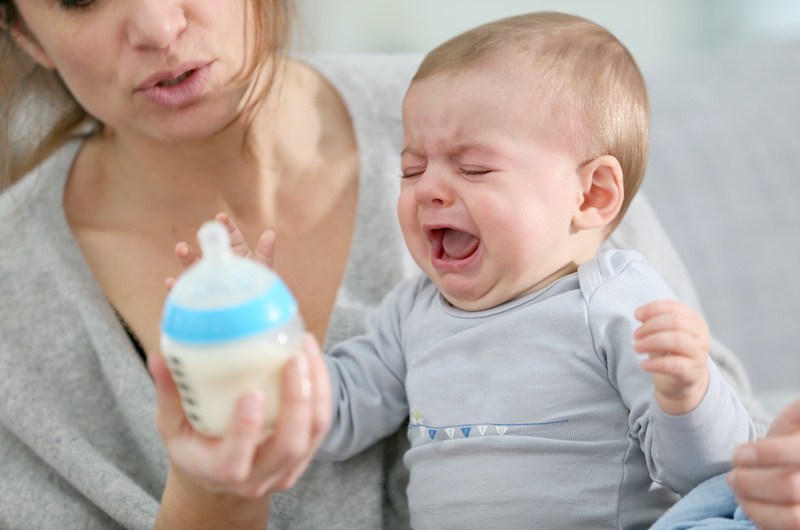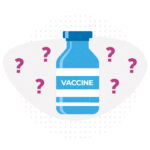Study sounds another warning about proton pump inhibitors

A new study adds to growing concerns about a class of drugs frequently prescribed to suppress stomach acid in patients with gastroesophageal reflux disease (GERD). Previous research has linked the use of proton pump inhibitors (PPIs) to an increased risk of various pulmonary and gastrointestinal infections in both adults and children. Patients treated with PPIs are also at higher risk for upper respiratory infections, pneumonia and sepsis.
A new study, published last week in JAMA Otolaryngology, suggests that use of PPIs may also raise the risk of hospitalization of infants and children with oropharyngeal dysphagia, a common swallowing disorder. The study was led by Rachel Rosen, MD, MPH and Daniel Duncan, MD at Boston Children’s Hospital’s Aerodigestive Center.
Misdiagnoses and overtreatment
Oropharyngeal dysphagia occurs when a child has difficulty swallowing because of problems with their mouth, tongue, palate, larynx or the muscle at the top of the esophagus. It is a common cause of aspiration of food or liquid into the lungs. Oropharyngeal dysphagia can also result in symptoms like coughing, noisy breathing, frequent respiratory infections and difficulty feeding.
Because the condition has symptoms that overlap with those of GERD, clinicians often prescribe acid-suppressing PPIs empirically — without knowing the diagnosis — in children who actually have oropharyngeal dysphagia and aspiration. This study suggests that such empiric prescribing may cause harm.
To test the hypothesis that PPI use increases hospitalization risk in children with oropharyngeal dysphagia, Rosen, Duncan and colleagues analyzed retrospective data from 293 children age 2 and younger who had evidence of aspiration on a videofluoroscopic swallow study during 2015. Of these children, 51 percent were prescribed (and took) a PPI during the study period.
New concerns about PPIs
Children who were treated with a PPI had a nearly twofold increase in hospitalization compared to those who didn’t take these medications. The researchers looked for confounding factors, but couldn’t find any evidence that the children treated with PPIs were sicker or had more comorbidities that would have predisposed them to more hospitalizations.
One possible explanation, however, is the increased risk of pulmonary and gastrointestinal infections in children taking these medications. Although more research is needed, these infections may be linked to changes in the microbiome caused by PPIs.
The findings, says Rosen, support the growing concern in both adults and children about the potential risks of PPIs and highlight the need to reevaluate their use in children with aspiration.
“Clinicians frequently jump to the diagnosis of GERD, but oropharyngeal dysphagia is actually quite common in young children,” she explains. “We need to be thoughtful about the possible diagnoses to avoid prescribing medications that are not beneficial and that may even be harmful.”
More about the Aerodigestive Center
Related Posts :
-

An unbreakable bond: Brothers turn medical complexities into superpowers
“Look! Is that one JetBlue? I think that one’s Delta!” Running through the grass, climbing on the jungle gym, ...
-

From swallowing troubles to doughnuts: How vascular ring treatment helped Everly
By the time she was a year old, Everly Parisee was frequently wheezing. Then she had trouble swallowing foods. Her ...
-

Will people accept a fentanyl vaccine? Interviews draw thoughtful responses
In 2022, more than 100,000 people died from opioid overdoses in the U.S., according to the National Center for Health Statistics. ...
-

New insight into the effects of PPIs in children
Proton-pump inhibitors (PPIs) are frequently prescribed to suppress stomach acid in patients with gastroesophageal reflux disease (GERD). Prescribing rates of ...





